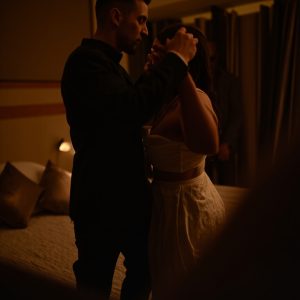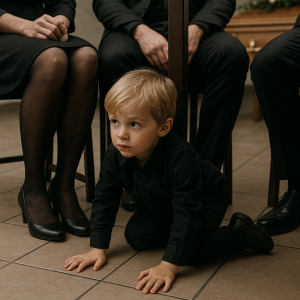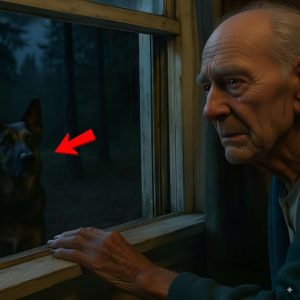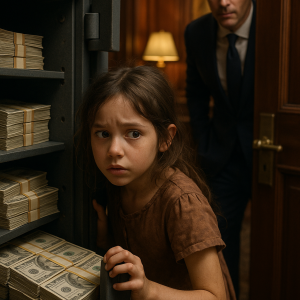I retired at 65 and took a trip. When I got back, my daughter-in-law had locked me out. That single, heartbreaking event changed everything I thought I knew about family, loyalty, and gratitude.
The October air was sharp and fragrant, carrying the earthy scent of fallen leaves and the promise of quiet evenings by the fireplace. As the taxi slowed in front of my home, my heart swelled with a simple happiness. After forty long years as an accountant, I had finally stepped into retirement.
For my first celebration of freedom, I gifted myself a long-awaited journey — two blissful weeks exploring the coastal villages of Italy. Those cobblestone streets, the lemon groves heavy with fruit, and the endless murmur of the Mediterranean waves filled my days with beauty. Yet, even amidst the Italian charm, a part of me yearned to come home — to see my grandson, Lucas, and listen to his stories about kindergarten adventures.
When the taxi stopped, I looked at the little house with its white picket fence and red flowers blooming in the window boxes. It was more than a house; it was the dream I had helped my son, Andrew, and his wife, Victoria, achieve five years earlier. I had emptied a large portion of my savings for the down payment, believing it was an investment not just in property but in our family’s future together.
The Locked Door
Dragging my suitcase up the walkway, I slipped my key into the lock. It didn’t turn. My brow furrowed. I tried again, harder this time. Still nothing. My pulse quickened as dread crept in. When I leaned closer, I noticed the lock was brand-new, with a shiny deadbolt I had never seen before.
I pressed the doorbell. No hurried footsteps. No Lucas running to greet me with open arms. Only silence. When I pressed again, the small smart speaker crackled to life.
“Yes, who is it?” It was Victoria’s voice, unusually bright and strained.
“It’s me,” I replied steadily. “It’s Margaret. I’m home. But… something’s wrong with the lock.”
“Oh, Margaret! You’re back early. We weren’t expecting you until the weekend,” she chirped. Then her tone shifted, crisp and cold beneath the sweetness. “About the locks, we decided to upgrade for safety. You know… for Lucas.”

I swallowed hard. “But how am I supposed to get inside?”
Another pause. Then her voice, firmer now. “Andrew and I have been talking. We think now that you’re retired and probably traveling more, it’s best if we all had our own space. Healthy boundaries, you understand.”
My blood froze. “I live in the attic suite, Victoria. I barely disturb you.”
“This isn’t about disturbance,” she said firmly. “It’s just better this way. Andrew will explain everything.”
The line went dead. I stood motionless, staring at the door of the house I had helped them buy — the house I had poured not just money but my heart into. And now, I was locked out by my own family.
Betrayal Hits Home
My phone rang. Andrew. I stared at his name flashing on the screen, a storm of grief and anger rising inside me. With one sharp motion, I declined the call. If my son had chosen cowardice, he would not soften it with empty words over the phone.
I hailed another taxi, this time to the most secure hotel downtown. The receptionist checked me in with impersonal efficiency, offering me something my own family had denied me — dignity.
That night in the sterile silence of the hotel room, I replayed everything in my mind. The early signs I had ignored. Victoria’s snide comments about my cooking. Her disapproving glances when I spoiled Lucas with a cookie or two. The subtle ways they had taken my support for granted.
I had helped them at every turn: the $150,000 down payment, the $25,000 attic renovation I had paid for myself, countless emergency expenses, and even the car Victoria drove. My retirement fund had been their safety net. And yet, I was now cast aside as if I were a burden.
But I was no victim. I was an accountant — and accountants know how to balance the books.
The One Action That Silenced Them All
At dawn, I brewed a pot of hotel coffee and opened my laptop. I began with a spreadsheet, meticulously recording every contribution I had made. This wasn’t indulgence in bitterness — it was evidence, a ledger of truth.
Then I made my calls.
To my lawyer, to discuss forcing the sale of the house I co-owned.
To my financial advisor, to shift my assets and establish a trust fund for Lucas — ensuring his security was independent of his parents.
To my bank, to close the joint account I had opened “for emergencies.”
By the time I finished, every tie that bound me financially to Andrew and Victoria was severed. They had locked me out of the physical home. I was pulling the rug out from under their financial foundation.
The next day, a formal family meeting took place in my lawyer’s office. When Andrew and Victoria walked in, their false confidence evaporated the moment I presented the documents.
I calmly explained: they had sixty days to buy out my share of the house — nearly half a million dollars — or it would be sold. When they protested that they couldn’t afford it, I reminded them it was the consequence of their choice.
Then I informed them that every additional contribution — from the car to the bills I’d silently covered — was over. Effective immediately.
Victoria’s face drained of color. Andrew sat in stunned silence. My decisive action had done what words never could: it left them utterly speechless.
Aftermath and Renewal
Over the following weeks, their desperation grew. Andrew called constantly, leaving voicemails begging me to reconsider. Victoria tried to shame me online, painting me as a heartless mother-in-law. But the community knew the truth. Her story collapsed under the weight of my years of visible sacrifice.
When the sixty days passed, the house went up for sale. It sold quickly, and my share was wired directly to me. Andrew and Victoria moved into a small rental apartment, their easy lifestyle gone.
I used my funds to purchase a bright condo in the city, fully mine, with a balcony overlooking a park. For the first time in decades, I lived independently, free of being used or taken for granted.
Two months later, there was a knock at my door. Andrew stood there, thinner, humbled, holding Lucas’s hand. With tears in his eyes, he admitted his cowardice and begged for forgiveness.
Lucas ran into my arms, his laughter healing wounds words could not. And in that moment, I forgave my son — not because the pain was erased, but because I had reclaimed my dignity.
Final Reflection
I retired at 65 and took a trip. When I got back, my daughter-in-law had locked me out. But instead of crumbling, I took one action that silenced them all: I chose to stand firm, to protect myself, and to reclaim what was mine.
Family can betray. Love can be taken for granted. But self-respect — once reclaimed — is the most unshakable foundation of all.









